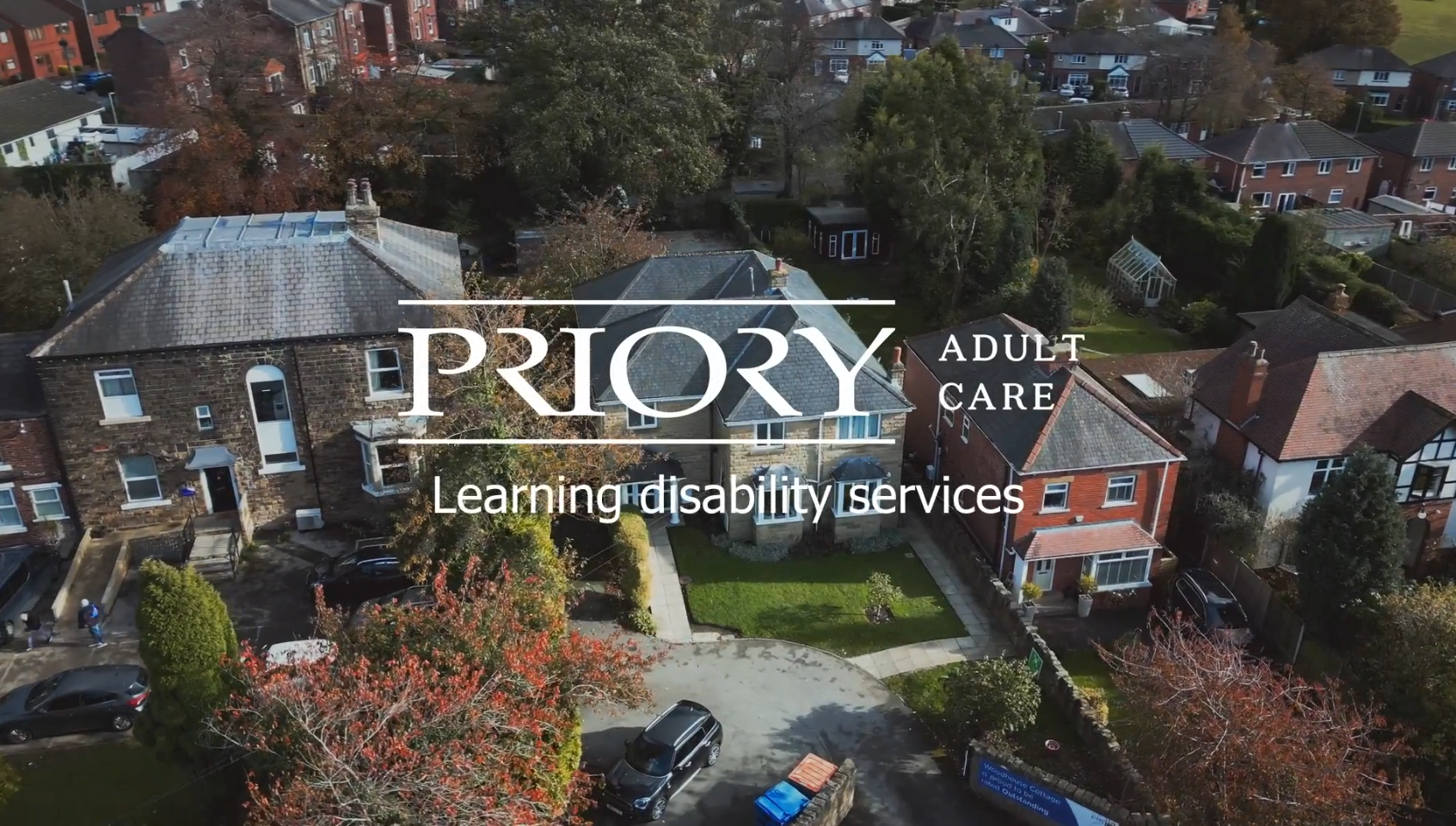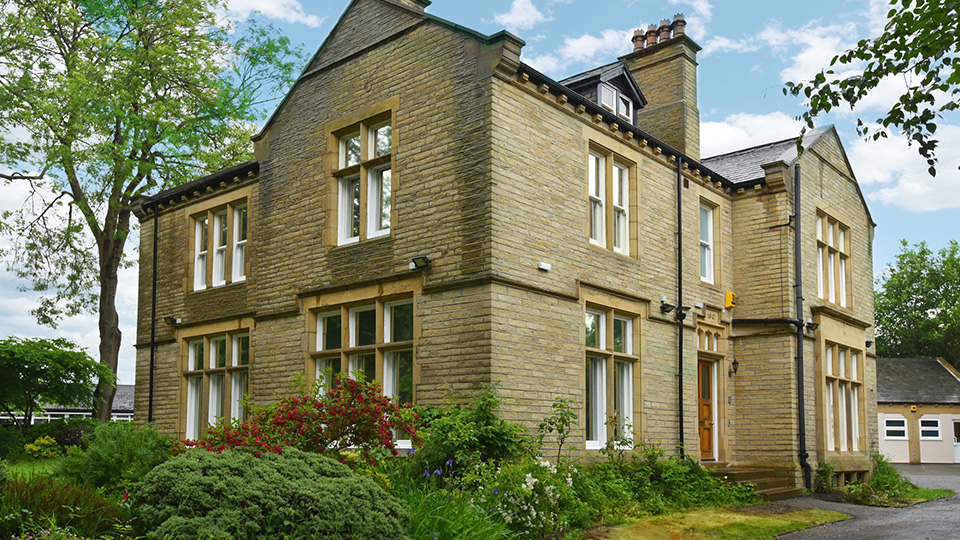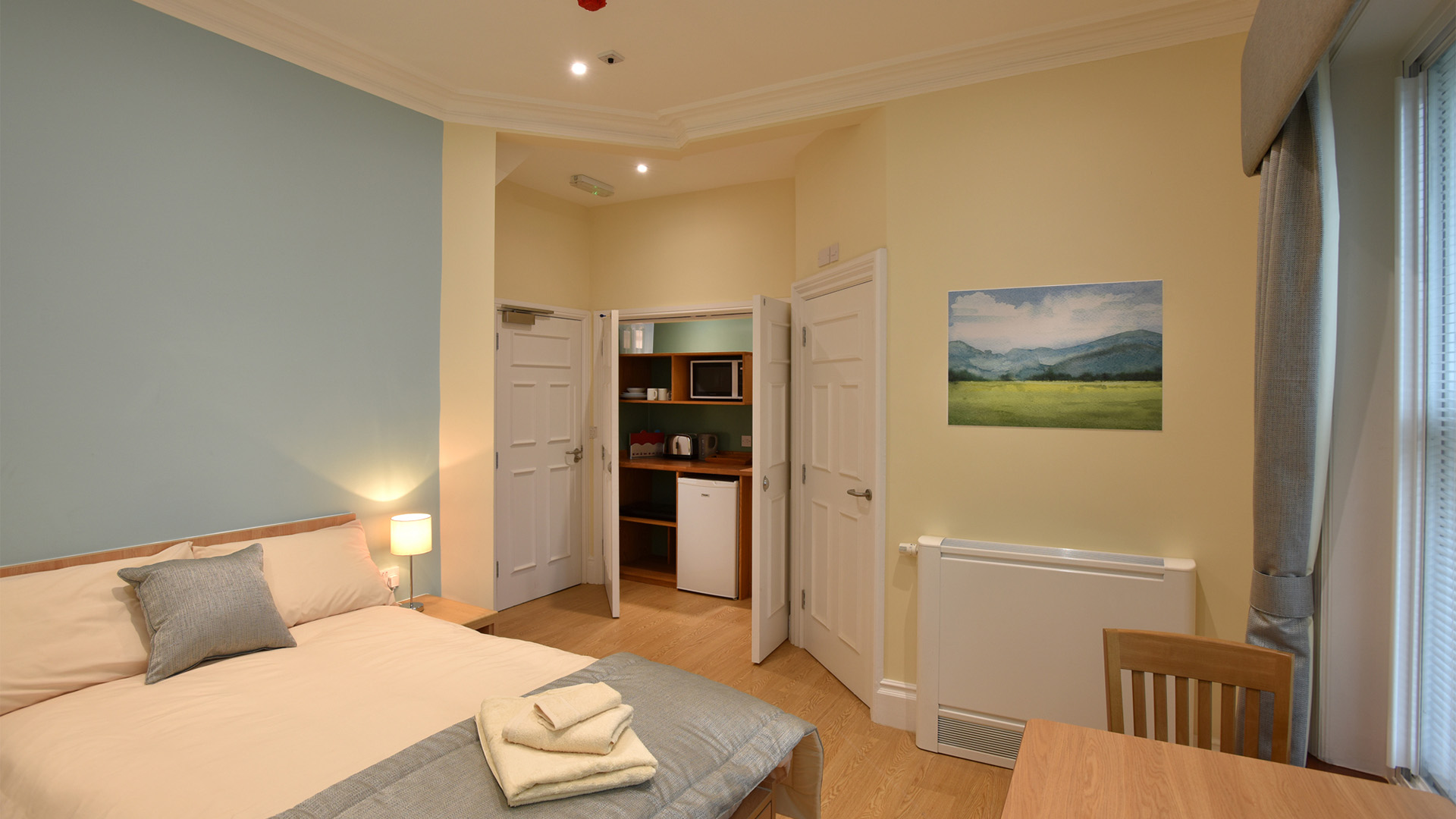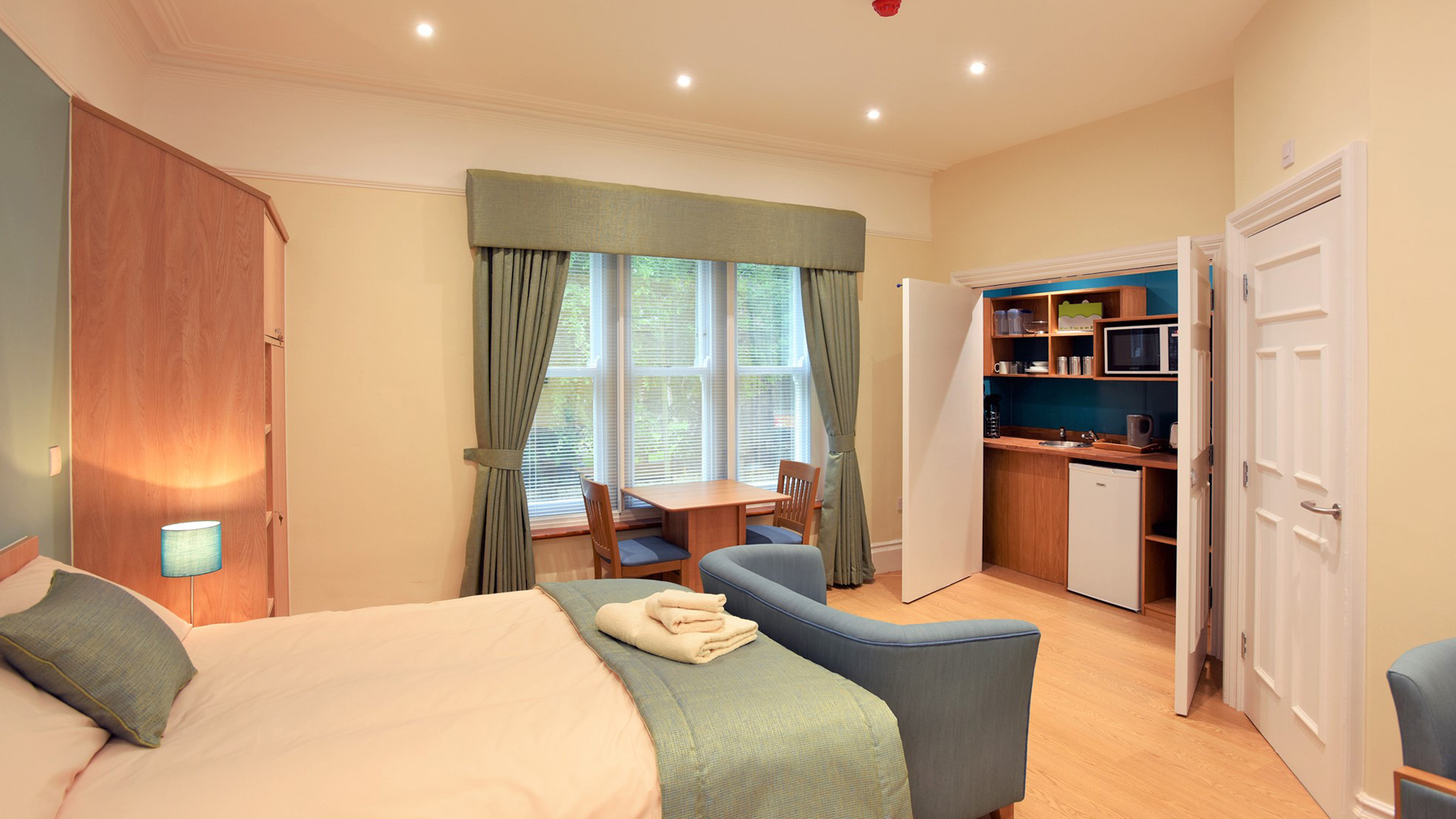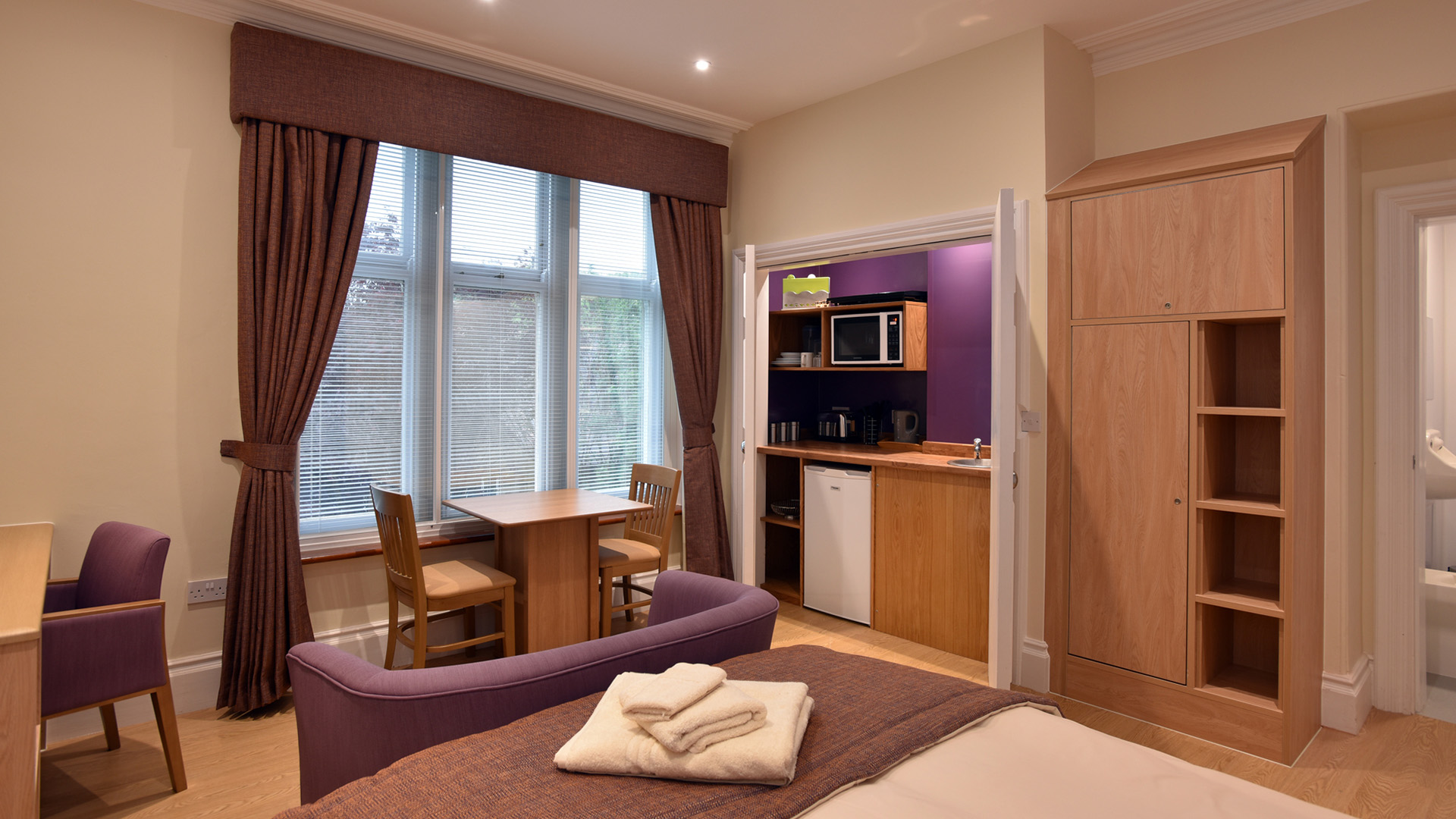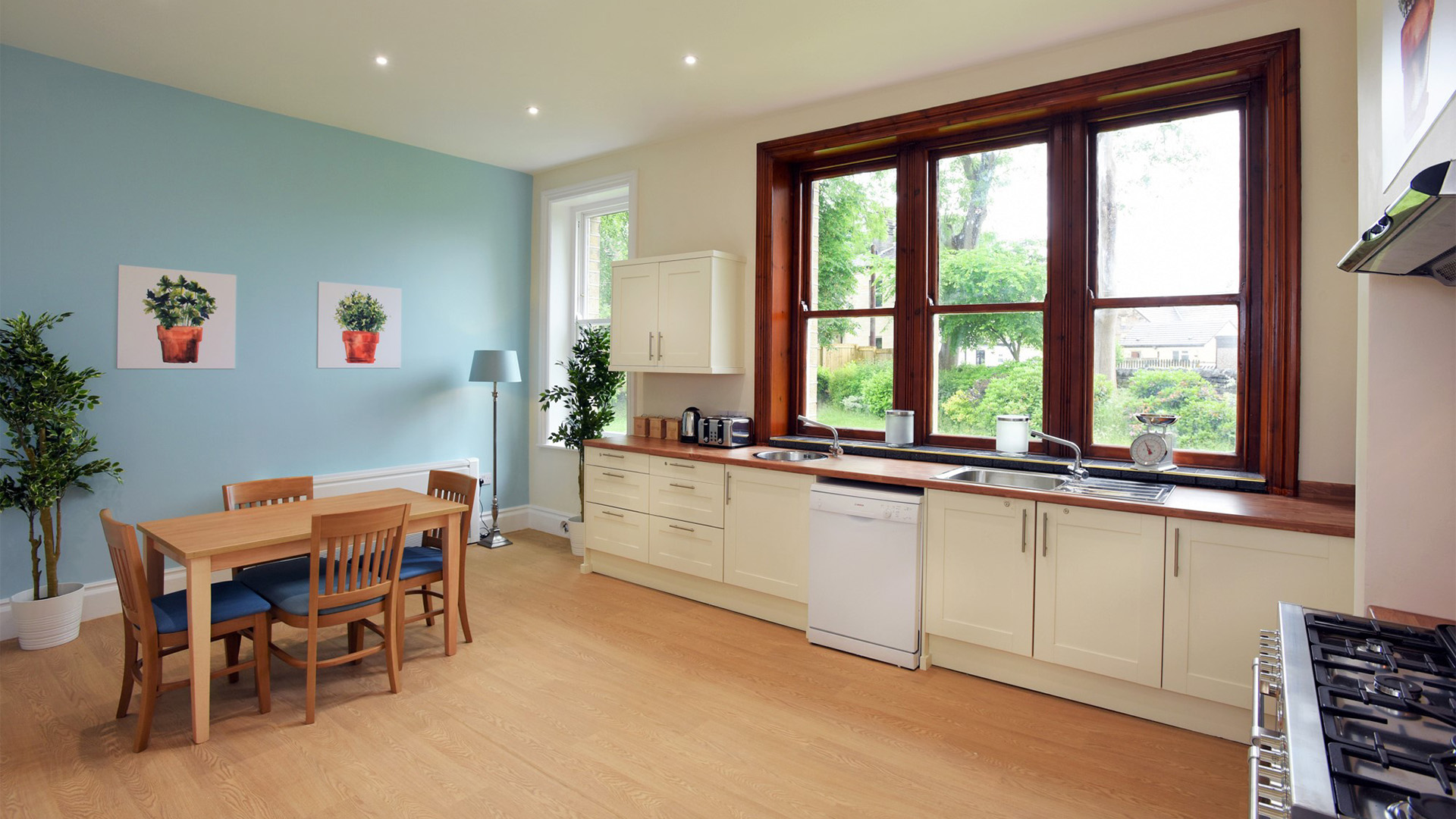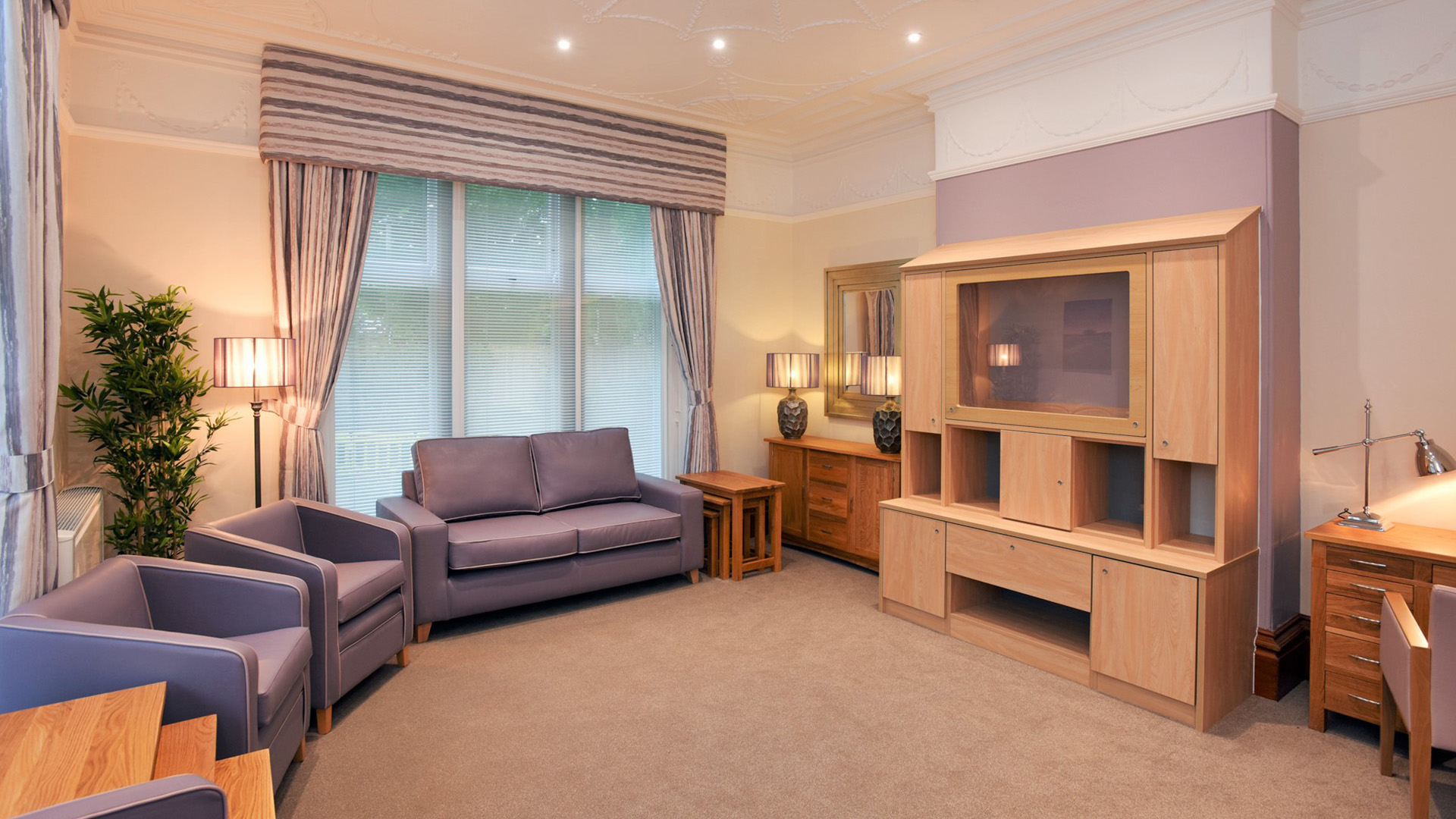About this location
The Old Vicarage is located close to Dewsbury town. It offers residential support for seven adult males and females with a range of needs. This includes adults with a learning disability, individuals with mental health needs, and people on the autism spectrum.
By encouraging people to take control and have belief in their potential, we can make positive outcomes a reality for everyone, regardless of age or presumed ability. We want to support the people we care for through residential to community living. This, paired with our personalisation agenda, enables us to help the people we support to lead fulfilled, independent lives.
We can also support those who have:
- Complex needs
- Difficulties with communication
- Mild to moderate behaviours that may challenge
- Epilepsy
Services at a glance
There are a total of seven bedrooms at the site. Of these:
Click here to enable this content
About our service
Our facilities and environment
The Old Vicarage is set in a large, detached, stone-built building, which was formerly a vicarage. Our home has lots of space and offers a relaxed, homely environment.
There are six bedrooms in the main building, and five of these have en-suite facilities. In addition, there is a stand-alone annexe which is home to a self-contained flat. It has a bedroom, en-suite with a wet room, a kitchen and dining room.
In summary, we offer:
- A large lounge with plenty of seating
- Kitchen and dining room
- Communal bathroom
We also have a garden, complete with:
- Secure fencing
- Lawn
- Communal seating
Our bedrooms
All of our bedrooms are comfortable, welcoming and can be personalised to individual tastes. Our bedrooms have:
- En-suite facilities, containing a shower
- Robust, low arousal furniture
- Activities of daily living (ADL) kitchenettes
Our approach to support
Everybody who lives at the Old Vicarage has their own person-centred care plan, which is co-produced with input from the individual, their family members and professionals involved in their care. We aim to help everyone in our care to make their own choices about the support they receive. This may include support in a number of areas, such as going out in the community, personal care, cooking and cleaning, financial management and maintaining family relationships.
Our support approaches at the Old Vicarage including positive behaviour support (PBS). We also have support from a local multidisciplinary team, and can provide our residents with regular reviews from a speech and language therapist, psychiatrist, occupational therapist, sensory assessments, GPs, chiropodists, dentists, district nurses and psychologists. We can also access the intensive support community team (IST), and the local community learning disability team.
In addition, we use tools such as the Outcomes Star™ to support our residents to achieve their goals. The lengths of the placements that we offer at the Old Vicarage can be medium or long-term residential, depending on the needs of each person.
Activities
Everyone who lives at the Old Vicarage has their own personalised activities planner and are encouraged to take part in activities which are meaningful and fulfilling to them. Our dedicated team organise a variety of activities at the home, as well as out in the community.
We focus on supporting our residents to grow their independence. For some people, this may mean developing their daily living skills within the home. For others, this could be accessing work or educational opportunities in the local community, such as work at local charity shops.
Exclusion profile
- Those who pose a risk to others in communal living areas
- Those with active, significant self-harm risks
Pathways
Through our network of healthcare, residential and supported living facilities, we provide unique care pathways which help the people we support to progress towards greater independence. Every individual we support is provided with a bespoke pathway plan, tailored according to their individual needs. We aim to ensure that each person is supported to live a fulfilling and active life in the community. We are currently working with Kirklees local authority on the development of a supported living service in the area.
Our team
Our highly experienced team consists of:
- Service manager
- General manager
- Support workers
- Senior support workers
Our team receive specialist staff training, designed to meet the needs of each individual we support. This includes:
- Epilepsy training
- Autism specialist training
- PROACT-SCIPr-UK® training
- PBS training
- Epilepsy training
- Diabetes management
- Crisis management training
Comments from our residents and their family and friends
The facilities are really fantastic. I have got a lot more independent living here
Staff are knowledgeable, compassionate and very accommodating. I could see the way residents trust the staff, using eye contact, smiling and joking and willingly going with them into the garden. The home was a pleasure to visit.
Family and friends FAQs
How does home leave work?
We support our residents to attend family events and visit their family homes. We will work with the resident and their relatives to ensure possible risks are managed and that everyone is supported. This may mean the individual’s key worker will come along on the visit. For those who are unable to visit their family home, we can support your loved ones with video calls.
Can friends and families visit?
Family and friends are welcome to visit. Visits are usually planned in advance to support individual needs. Unfortunately, family members cannot stay overnight.
Will I be involved and kept up to date with the progress of my loved one’s care and support?
Yes, we strive to keep the loved ones of our residents involved in their care. Families are invited to regular meetings at the home, where meet with the residents’ support team and hear about recent happenings at the home. We can also arrange more regular catch-ups either in person or via telephone, to ensure families are kept informed.
Will my loved one be able to have a phone or call me?
Everyone who stays with us are supported to call their loved ones any time, via phone or video call. Family and friends are also able to call as often as they like.
What are the bedrooms like?
Bedrooms are all furnished and residents are supported to personalise them to suit their needs and wishes. For example, one of our residents has decorated their walls with art they have created during arts and crafts sessions at the home.
Are external doors kept locked?
Yes, the front door is locked as you would at your own home. The front gate is key-code operated and main doors are also key code operated. Each resident has the code for their own room.
What do residents eat and how do meal times work?
Residents get together to plan their weekly menus, with the support of our staff, and then take part in shopping for groceries. Everyone takes part in daily meal preparation and serving. The kitchen is open through the day for residents to make drinks and snacks.
How does laundry work?
Residents are given help to do their own laundry, as part of promoting independence. Our staff are on hand to offer support if and when it is required.
Who does the housekeeping and domiciliary tasks?
Staff support and encourage our residents to complete these tasks, to promote their independence. We also have a dedicated housekeeping and maintenance team at the home.
Is there anything they can’t bring or have?
Residents are not allowed to bring illegal or harmful substances onto the premises. We would also ask that people do not bring high risk personal items into the house.
How do activities work?
Activities are planned according to our residents’ choices and interests. Thorough risk assessments are conducted before any activity. Everyone has a tailored activities planner, and this will include both in-house activities as well as visits into the community. Their key worker may use a variety of communication tools to ensure they can have an input into the planning of activities. These include:
- Work opportunities
- Bowling
- Cinema
- Seaside trips
- Shopping
- Gym
- Swimming
- Trampolining
- Boxercise
- Arts and crafts
How will residents be supported with their behavioural needs?
We use the PROACT-SCIPr-UK® framework, which means we focus on proactive strategies, rather than physical intervention. Some of our residents may have sensory requirements in order to reduce their anxieties, over-stimulation or to assist with emotional regulation. These needs will be considered carefully in their support plans.
Do residents and families have an input into the care plans?
Yes, we encourage families and extended support providers to be involved with the care plans. We use a variety of communication tools to work collaboratively with the person we care for to co-produce the plans so they are tailored to their needs. We value this important input from others where appropriate.
What are the car parking facilities?
There is ample off-road parking.
What is the smoking policy?
We have a designated area in the garden for residents to smoke or to vape, and they can be supported to purchase cigarettes at the shop, if this is what they choose. However, we do promote healthy lifestyles and can support residents with smoking cessation programmes.
What are your fees and how are they funded?
Our fees can vary, and are based on an assessment of each individual's needs. Many people are eligible for financial help towards the cost of support, and this funding can be accessed by contacting your local authority. Once funding has been agreed, we will work with your local care team to put together a bespoke package of care. Please note, referrals for NHS or Local Authority funded services must come from a referring organisation.
How to make a referral
Our service provides high quality support to people with varying levels of need. Referrals can be made through the individual’s social care team or, if relevant, their local health authority. If you are a professional looking to make a referral, please call us or fill in our enquiry form.


